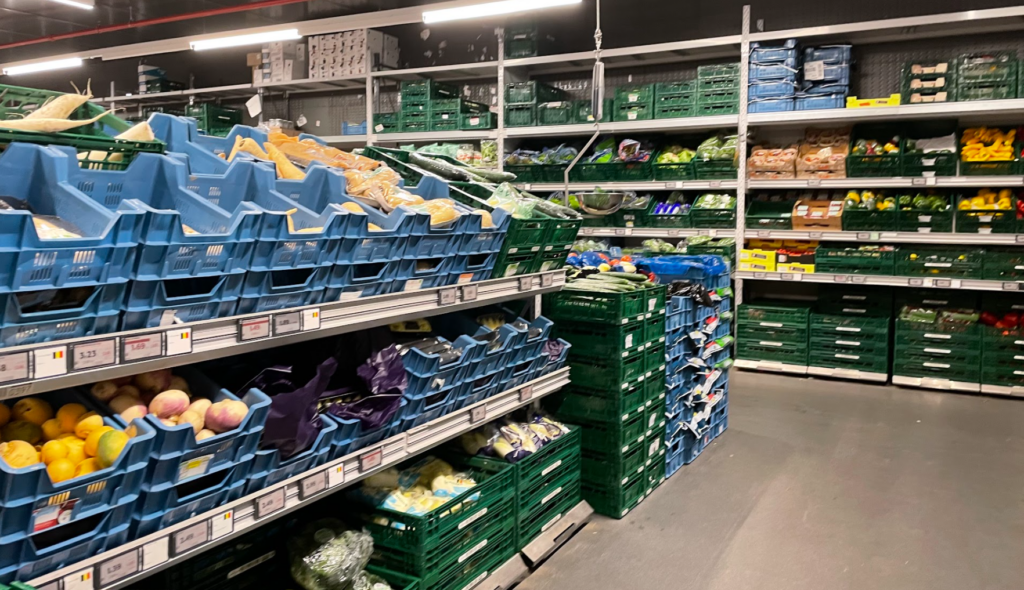Three out of 10 food companies in Belgium are considering reducing or even shutting down their production, according to the professional association Fevia. With extreme price spikes and supply issues, it is their only way out of producing at a loss.
“It is clear that the price spiral we have entered is not just ‘a bit more expensive’,” a Fevia spokesperson said. “Every day this looks more like the crisis of the 1970s.”
Skyrocketing costs
With high energy bills, rampant food inflation and shortages in supermarkets, food companies are facing skyrocketing costs. On top of that, the pandemic has had a harsh impact on the sector, while harvests have been poor due to unpredictable weather and the bird flu has had an impact on production, too.
The war in Ukraine and the sanctions against Russia directly affect vegetable oil prices, while maize and other grains also rise in prices.
While Belgium mostly imports its grains from France rather than Ukraine, if supply continues to shrink significantly, scarcity will drive up the prices everywhere. “Suddenly many countries are asking for a share of the grain harvest in France, but our industrial bakeries have been loyal customers there for years.”
No passing on costs
It would not be a reason to panic if food companies could pass on the higher bill to their clients, but that is not often the case. While the catering industry is willing to pay a higher price, retail relies on long contracts and fear losing market share and revenue when prices rise. While food companies attempt to pass on part of the costs, there are many cases where it is not possible.
“As a result, 30% of our members have no choice but to reduce or even stop production. The food has an average profit margin of about 4.5%, but that has already been halved. Many producers are happy when they break even. Producing at a loss is not possible, because then you will plunge your company into the abyss. We expect production to decline in the coming weeks.”
Dramatic consequences
“The situation is really dramatic,” the owner of a medium-sized producer of sauces said to De Morgen. “But everyone in the sector is in the same boat on a turbulent sea. Vegetable oil has been in short supply for years due to a combination of weaker harvests and geopolitical conditions.”
“During the lockdowns in Europe, Chinese buyers were taking everything,” he explains. “We didn’t dare to buy much, as you risk fines from the suppliers if you cannot purchase what you order. That means that we are now facing major shortages of rapeseed oil and others.”
That affects the price, as rapeseed oil was available at €750 per ton last year, while today the same will cost about €2,200. “Our supplier of eggs - a basic product for mayonnaise - has announced that it will stop. That company spends more money raising chickens than they get paid for the eggs.”
Related News
- Belgian fries another casualty of Ukraine conflict
- Greenhouse growers go broke over high energy costs
- Government launches task force to avoid empty shelves in supermarkets
No solution but price rises
Calculating the prices is complicated, as supermarkets and other major players work with year-long contracts which don’t allow price adjustments. But even though food companies are facing fines for adjusting their prices, they are forced to.
“We are going to have to do it, there is no other solution. In normal times, price swings are a story of taking the blow with the bump, but nothing is normal anymore today.”
Flexibility for ingredients
As the government wants to avoid empty shelves, flexibility on the ingredients displayed on product's labels will be granted.
While producers of frozen chips or mayonnaise can use peanut oil as an alternative to sunflower oil from Ukraine, that does not match the ingredients on the mayonnaise jar. State Secretary Eva De Blekker has instructed the Economic Inspectorate to allow flexibility.

